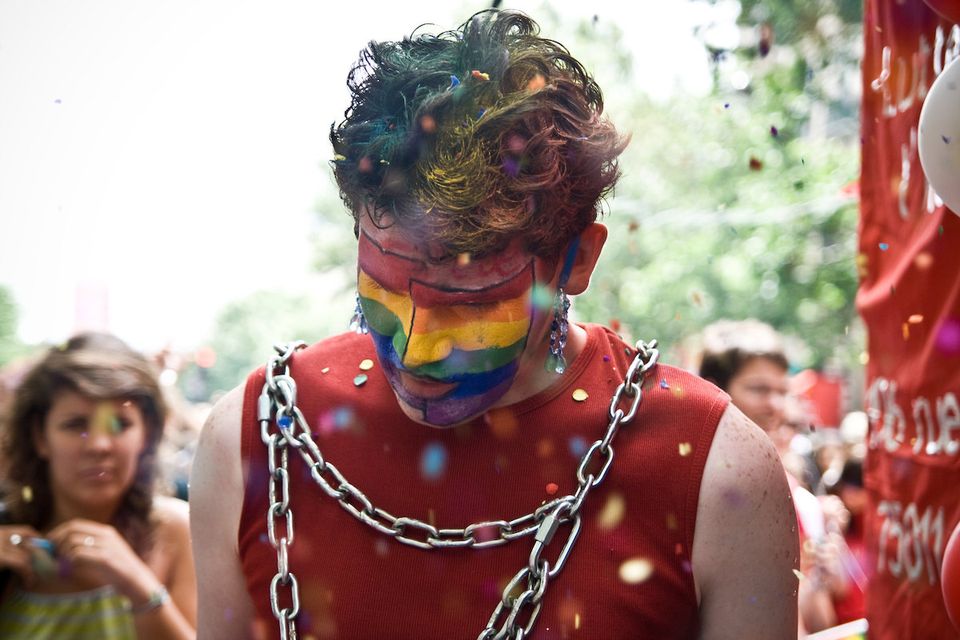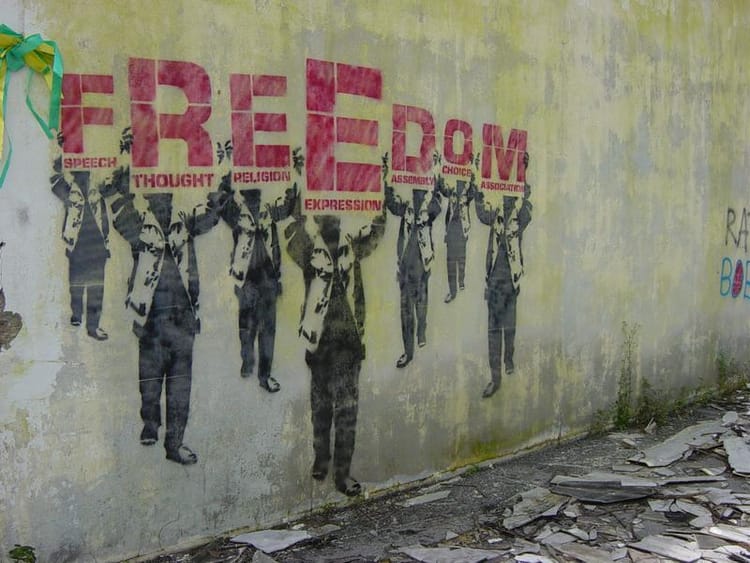Queer Rage is Valid But Weakens LGBTQ Leadership

Our in-fighting strengthens those who seek to silence us.
I remember helping establish the first Queer Nation chapter in Ottawa, Canada. I think it was during my second year of university in 1989. It’s hard to remember all the details, given how long ago it was. The Ottawa chapter was short-lived.
I convinced a friend, who at the time was an outspoken media-savvy gay man, to act as president of the chapter — while I took on the work of organizing the launch. All I remember — besides one or two organized protests, and being interviewed live on a New Your City talk news radio station — was the total discord and divisiveness at the meetings. One particular meeting turned into a heated shouting match of queer rage — gays, bis, lesbians, and whoever else was present — everyone wanting their single voice to be heard above the din of shared anger, frustration, oppression, and an obvious lack of clearly defined leadership.
At the time I was not good at leading.
In that environment, my behavioural response was to go on the defensive. Anger begets anger. It was a red-line trigger for me, and in many ways it still is. Some of us are better at being able to maintain composure in the face of anger or threat. What I felt in that group was the collective anger that each person had, but everyone chose to see it as their own. While the core of the anger was universal within the group, no one could agree. Many of us, myself included, got swept away in a shared rage. I witnessed how powerful a group energy dynamic could be, and how when you are present in a group of angry, shouting, seemingly disparate people, the energy negatively infects everyone.
If there was a third meeting of Queer Nation, I have no recall, or I simply stopped going. Instead, I went deeper into my research at University, as far away from group dynamics as I could, having felt a complete lack of emotional composure that I now see as a lack of self-control, a lack of self-awareness, and an inability at that time to lead with influence.
The Relationship Between Leadership and Influence.
How do leadership and influence work together positively? Their affect must be consciously motivated on the part of the person who is following or taking inspiration from someone who is in a leadership capacity. Otherwise, we witness the negative outcomes of autocracy and power: recruitment and persuasion.
These negative outcomes are what lead me back to the original question, “What is queer leadership?” When leadership and influence go wrong we tend to move towards the hyper-masculine energies of force, power, control, and self-centredness. How can we then use and live out our queer gifts and insights to better balance the so-called masculine and feminine energies as exceptional leaders?
Leadership, when it morphs into the worst examples of patriarchy and male dominance, (e.g. Putin, Trump, Kim Jong Un, Evangelical pastors, and so on) seeks absolute power and control above all else. A supreme leader takes over. He dictates orders and decrees. Individual expression is limited and controlled. Non-variance from the status quo is rigidly enforced. The freedom to express as the other is suppressed. There is no gap to exist within the boundaries and no bridge to cross — only a rigidly enforced binary. The energy becomes toxic because its spread is poisonous and it’s the opposite of influence.
This begs the question,
Would we be better served by a small group of diverse leadership?
What is Influence?
As understood through its original and humanitarian meaning/origins, influence is a, “streaming ethereal power from the stars when in certain positions, acting upon character or destiny of man.” (Etymology.com)
The Humanity of Leadership Exists in the Gap
If we learned to spend more time in the gap — the moment of no reaction so that when you feel on the defensive, instead of getting angry you catch yourself and take a few deep breaths to activate your “thinking brain” and calm your ancient, reactive brains — would we have some of the problem we are currently facing in the world?
The longer we live blinded by the defensiveness of our ego, and the more we see the world in rigid binaries of right and right, of mine and yours, the more we elevate power and control above a humanitarian leadership. An unchecked ego is a foundation for divisiveness.
The worst expression of our ego unchained is manifest in toxic capitalism.
Taken to the extreme, a small number of mostly men own most of the land, resources, money, power (control of governments), and the economy. Those in power deny climate change — even when profitable options exist to halt the damage being done to the planet — because any change would limit profits in the short-term and incurr upfront costs.
Historically, the level of egotistical control may have been — at first — based on survival, but over hundreds of years morphed into a twisted morality and ideology. To use a biblical example, the Israelites needed to expand their tribe and established a decree to make more babies, which is the origin of, “Thou shall not lie with another man”. This had nothing whatsoever to do with a decree against the universal nature of homosexuality. In the last century, the Nazi party banned abortions for its “Aryan citizens” to increase the “German master race” — but they allowed and even promoted abortions for Jewish people.
If everyone were taught to understand that power is an illusion and a complete disconnect from humanity, would human beings become more aware of their need to take care of the thing that supports their life in the first place, namely the planet?
The planet will take care of itself. It will exist beyond human beings and humanity. We need to change our thinking from fixing the external — the planet — to fixing the internal — ourselves — and how we dominate, control, and deplete resources that will result in our destruction. All this is a lack of a behavioural energetic balance. We must embrace the feminine, the Yin, or the diffuse as an act of self-care. Such a change would translate into equal and better treatment of others, animals, the environment, and humanity as a whole.
Is the shadow side of leadership primarily toxic masculinity?
First, this is not to claim that women or other non-cis-male genders cannot lead in a way that is out of alignment with the two core essentials of evolutionary humanitarian leadership mentioned in, “The Way of Queer Leadership Is Never a Straight Path”, namely,
1. Don’t lead others directly.
2. Give people an evolving philosophy.
A better phrase than “toxic masculinity” is “misguided masculine energy” or misguided masculine characteristics.
It can be useful to describe misguided masculine energy going so far to one side of the spectrum that it becomes a bundle of toxic behaviours. At its worst, misguided and toxic masculine energy polarizes people. These behaviours seek to exclude anyone classified as the other, anyone who is not part of the rigid binary expression of the hegemonic, patriarchal social structure. Unique sexual and gender identities are considered off-limits. Any freedom of expression is seen as a challenge or a threat to the dominant social order. When a toxic leader, autocrat, or demagogue silences the “others” in society, essential and unique queer voices (and often lives) are lost.
The negative energy of this toxic behaviour — misguided masculinity — seeks to recruit rather than lead. Recruitment may have benefits in some instances, but recruitment as a tool to control is a form of toxic leadership. When the goal of “recruitment” is to increase one’s base of followers — to indoctrinate with an ideology and incite hatred and violence — you don’t have an ethical or humanitarian leadership. Instead, you are left with a despot, a dictator, or a zealot.
If there is no right or freedom of the individual, we have tyranny.
Image by philippe leroyer: Lesbian & Gay Pride (172) — 28Jun08, Paris (France)





Member discussion